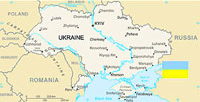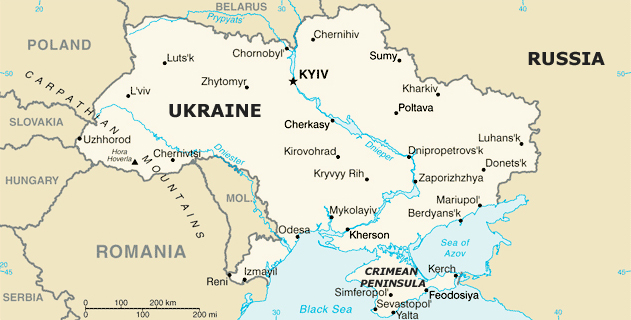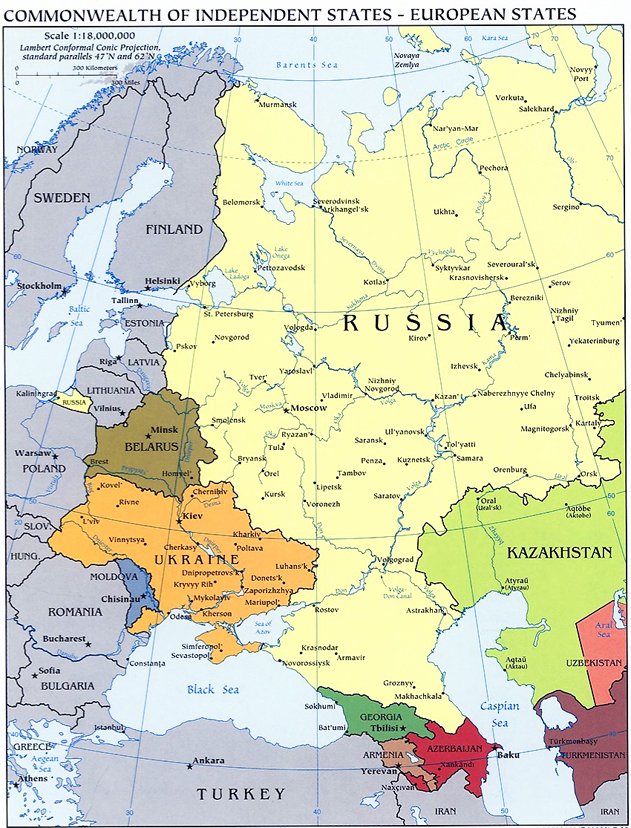Harvard Study Shows Russian-speaking Ukrainians Backing Kyiv

(Voice of America – Doug Bernard – October 8, 2014)
[Study here http://papers.ssrn.com/sol3/papers.cfm?abstract_id=2501761. “Russia, Ukraine, and the West: Social Media Sentiment in the Euromaidan Protests”]
A new study conducted at Harvard University suggests that Russian-speaking Ukrainians may be significantly more supportive of Kyiv’s standoff against Moscow and the pro-Russian separatists than has previously been reported.
The study, authored by researcher Bruce Etling at Harvard’s Berkman Center for Internet and Society, is one of the first serious explorations of Russian, Ukrainian and English language social media content regarding the turmoil there over the last eleven months.
“Our general reading of newspapers and traditional media about the protests was that Russian speakers tended to disapprove [of the protests] and Ukrainian and English speakers tended to approve, and that would then just bleed into social media,” Etling said. “We wanted to see if that was what really happened.”
Tracking media
Starting from the time of the first protests at Kyiv’s Maidan Square in late November 2013, Etling and his colleagues pulled traditional and social media references from an enormous data base to see what people were talking about, and how supportive they were.
“That includes Russian and Ukrainian newspapers, government websites, LiveJournal, ITV and such, plus the full social media fire hose of blogs, forums, Twitter and the like,” he said.
Using advanced computer algorithms, researchers analyzed not only the news, stories, and opinions people were seeing and reading, but in turn what they were posting online, as well as their feelings about specific events as they happened.
Among the study’s findings were the breakdowns of each unique mix of social and traditional media used in Russia, Ukraine and the U.S. “In Russia, blogs are still a really important source of social media content,” Etling told VOA.
Though not a surprise, researchers found it noteworthy that in Russian language sources, about one-quarter of all content was from blogs – a much higher portion than that seen in either Ukraine or the U.S.
Supporting Euromaidan protests
What was surprising, “very surprising” Etling said, was the portion of Russian-language content coming specifically from within Ukraine that was backing the Euromaidan protests.
“In Ukraine, among Russian-speakers, 74 percent were supportive of the protests, and only a quarter were opposed,” he said.
Additionally, even among Russian-language content within Russia, support was nearly equal with opposition, at least at the beginning.
“That was really unexpected. It was so surprising that it was so overwhelmingly positive,” said Etling.
Etling is more cautious when asked to explain the study’s findings, noting that there are likely a number of factors at play in a very fluid situation. Among them: Internet use.
“It’s possible that people online using social media are more educated, have greater resources – these may be people demographically more inclined to support greater Ukrainian connection with the West than those living in rural Eastern Ukraine, where Internet access is more limited,” he said.
Russian’s self-censorship
Another factor may be a tendency in traditional media to over-simplify the situation into two camps: either Russian-speakers or Ukrainian-speakers with no in between.
“These are complicated issues in countries we usually don’t cover thoroughly, so it is possible the media oversimplified the story,” Etling said. “Also, Ukrainian experts I’ve spoken with say many Ukrainians speak both languages,” something he said often gets lost in media coverage.
While support for Kyiv generally remained stable among those in Ukraine, for Russians within Russia opposition to the protests grew over time, reflecting what some have seen as a hardening of positions on both sides of the border. That may be a result of nationalist feelings, but Etling said that may also be due to increasing media control and self-censorship there.
“I definitely think self-censorship in Russia is becoming increasingly problematic,” Etling said. “It’s becoming so difficult to express for someone who’s opposed to the Russian government’s view in Russia to talk about Ukraine war in a negative way.”


